China's once again the bogeyman in the race for the White House
Updated: 2015-08-18 03:57
By Chen Weihua in Washington(China Daily USA)
|
||||||||
China has often become a bogeyman in recent US presidential campaigns, as witnessed by the many Day-One vows by Republican candidate Mitt Romney in the 2012 race to get tough with China. The unfolding 2016 election cycle seems no exception to the rule.
While the US news media has focused heavily on the celebrity candidate Donald Trump, including his offensive comments on Mexicans and women, the real estate tycoon has also wasted no time bashing China at every opportunity.
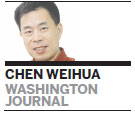
Trump said China's recent devaluation of its currency yuan would be "devastating" for the US. "They're just destroying us," he told CNN last Tuesday.
His words are in sharp contrast to comments by economists, both in the US and at the International Monetary Fund, who believe the measure China has taken is a move towards a more market-oriented exchange rate. The IMF also said on Friday that the yuan was no longer undervalued.
Ben Bernanke, the former Federal Reserve chairman, said on Monday that the recent Chinese move regarding the yuan is exactly what the US has asked for for a long time.
"We have so much power over China," Trump said. "China has gotten rich off of us. China has rebuilt itself with the money it's sucked out of the United States and the jobs that it's sucked out of the United States."
In announcing his presidential bid on June 16, Trump said: "I'll bring back our jobs from China, from Mexico, from Japan, from so many places. I will bring back our jobs, and I’ll bring back our money."
Trump did not say what kinds of jobs he will bring back from China, Mexico and Japan. But if he goes to Macy's and other department stores in the US, he will find that most of the clothing there is no longer made in China, but rather in Vietnam, Bangladesh and Sri Lanka — places where wages are lower.
If Trump wants to make American workers weave cloth and sew garments again, China will certainly be more than happy to move up the supply chain, just as its new economic strategy aspires to do.
This is not to mention that US politicians never talk about how American corporations made fortunes by exploiting Chinese workers and polluting the Chinese environment.
For US politicians, blaming China has become an almost habitual way of showing that they have the guts to be a leader, regardless of how irrelevant such comments are.
"We borrow money from China for our daily expenses. That would be like borrowing money for groceries. Needs to stop!" tweeted Rand Paul, Republican Senator from Kentucky and presidential candidate, on Aug 12.
"We are borrowing money from China today," said Louisiana Governor Bobby Jindal during the Aug 6 Republican presidential debate.
They both miss the point, which is that only a fraction of the US national debt — in excess of $18 trillion — is borrowed from China.
The question for Paul and Jindal would be if it's not good to borrow from China, would it be okay for the US to borrow from US allies to further expand the national debt. While these politicians may not appreciate the fact that China agrees to lend money to the US, China certainly has not forced the US to borrow its money.
Many Republican candidates seem to be quite ignorant of what their government has been doing.
"The Chinese attacked our government and hacked into the lives of 4 million Americans," claims former Arkansas Governor Mike Huckabee on his campaign website. "The response and retaliation to this behavior is simple — America should hack the Chinese government. We should hack the cell phones of some prominent Communist party leaders, hack the bank accounts of intelligence officials, publicly humiliate Chinese families for political corruption, or wipe-out a few critical Chinese computer systems."
While Huckabee's allegations are totally unsubstantiated, he clearly is not aware that the National Security Agency (NSA) has been doing what he recommends — and more — not only in China, but all over the world, including key US allies such as Germany and Japan. And of course, such intrusive NSA actions never become an issue for most presidential candidates.
According to candidate and former US Senator Rick Santorum, China's rise should be totally attributed to US President Barack Obama, something that even the Chinese don't realize.
"Every step of the way, he has been soft on our enemies and harsh on our allies," Santorum said of Obama on Saturday. "He has empowered China, he has empowered Russia, he has empowered ISIS (ISIL) and he has empowered Iran."
Jindal claimed on Aug 6 that Obama said that "we don't have leverage with China to get a better deal on Iran," because the US borrows money from China. His statement was quickly confirmed by fact checkers the next day as false.
If a US president needs to lead his nation by blaming China and others, it could be the easiest job in this world, and a job that gets nothing done.
Despite the displeasure at the US blame game, many Chinese have also seen it simply as a reflection of growing importance and success of China.
Contact the writer at chenweihua@chinadailyusa.com
- Tsipras formally resigns, requesting snap general elections
- China-Russia drill not targeting 3rd party
- UK, France boost security
- China demands Japan face history after Abe's wife visits Yasukuni Shrine
- DPRK deploys more fire units to frontlines with ROK
- DPRK, ROK trade artillery, rocket fire at border
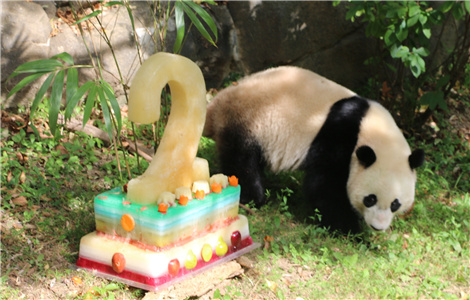
 Giant panda Bao Bao celebrates two-year birthday
Giant panda Bao Bao celebrates two-year birthday
 Across America over the week (Aug 14 - Aug 20)
Across America over the week (Aug 14 - Aug 20)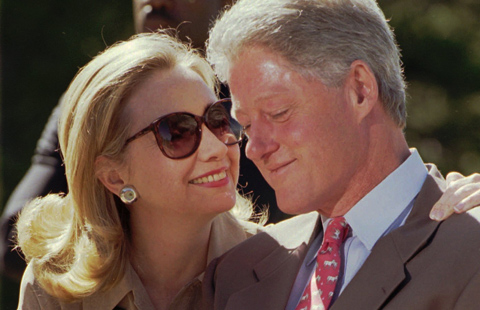
 Stars in their eyes: leaders in love
Stars in their eyes: leaders in love
 A survival guide for singles on Chinese Valentine’s Day
A survival guide for singles on Chinese Valentine’s Day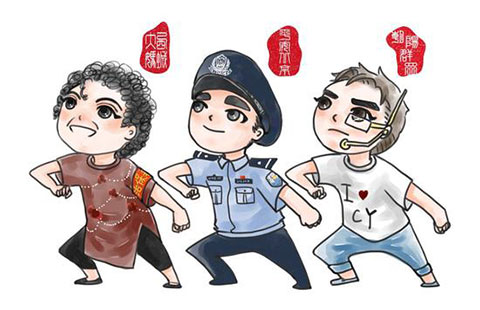
 Beijing police publishes cartoon images of residents who tip off police
Beijing police publishes cartoon images of residents who tip off police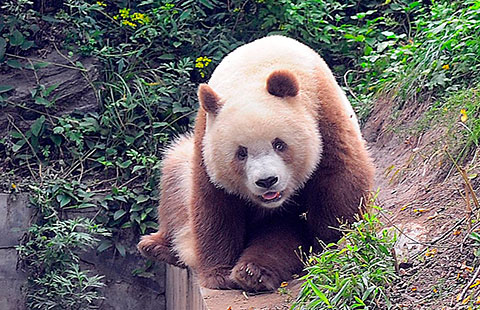
 Rare brown panda grows up in NW China
Rare brown panda grows up in NW China
 Putin rides to bottom of Black Sea
Putin rides to bottom of Black Sea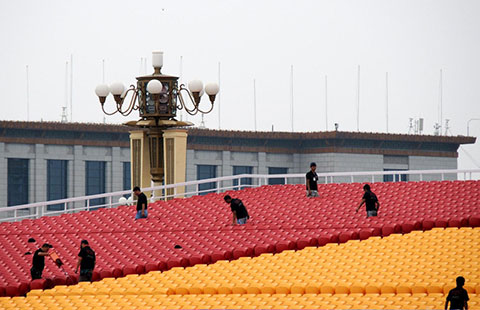
 The changing looks of Beijing before V Day parade
The changing looks of Beijing before V Day parade
Most Viewed
Editor's Picks

|

|

|

|

|

|
Today's Top News
China equities collapse sparks global markets sell-off
Targets set for regional integration
China advocates practical cooperation between LatAm, East Asia
Giant panda gives birth at Washington's National Zoo
Emissions data won't change China policy
Preparations shutter Forbidden City, other major tourist spots
President Xi Jinping calls for crews not to ease up
Chemical plants to be relocated in blast zone
US Weekly

|

|







